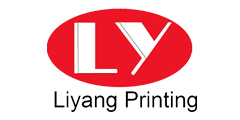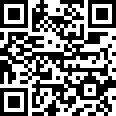[China Packaging Network News] With the economic development and improvement of living standards, people are paying more and more attention to food hygiene and safety. In addition to serving as a food container, food packaging also ensures food hygiene and decorative effects. In recent years, the food packaging industry has developed rapidly. The packaging materials are in direct contact with food. Its health and safety are directly related to human health. The quality and safety of raw materials are particularly important.
Paper packaging as an important part of food packaging, its quality and safety has also been more and more attention, affecting the safety of paper packaging in addition to bacterial problems, harmful fluorescent substances are also one of the important factors affecting food safety, some companies cater to meet Consumers like the white mentality and intentionally add harmful chemical brighteners to increase the whiteness of the product. Fluorescent brighteners have a carcinogenic effect. After using paper products with a fluorescent white level exceeding the standard, consumers' health will be seriously harmed. Therefore, strengthening the supervision of fluorescent substances in paper packaging products will help ensure the control and management of food safety and help protect the health of consumers.
There are many opportunities for exposure to fluorescent agents in life. As long as it is not in excessive contact with the human body, it does bring a lot of convenience and benefits to people. However, if the fluorescent agent is exposed to the human body in excess. It will have many harmful effects. Scientists' research shows that after the fluorescent agent is absorbed by the body, it is not easy to be decomposed like ordinary chemical components. Once a fluorescent agent binds to a protein in the body, it is not easy to remove it, unless it can be excreted through the decomposition of enzymes in the liver, which undoubtedly aggravates the burden on the liver. In the event that the body has a wound, the combination of the fluorescent agent and the protein at the wound will hinder the healing ability of the wound. According to medical clinical experiments, it has also been found that fluorescent substances can cause cells to produce variability, such as excessive exposure to fluorescent agents, accumulation of toxicity in the liver or other vital organs, it will become a potential carcinogenic factor.
How to detect?
At present, China has no perfect standard analysis method for paper fluorescent substances. The GB/T 5009.78-2003 standard stipulates a qualitative test method for fluorescent raw materials for food hygiene base paper. The method uses a UV analyzer to detect whether the paper sample exceeds the limit. Standards, other detection methods are mainly the difference method, fluorescence spectrophotometry, high-performance liquid chromatography, etc. These methods can only reflect the content of the fluorescent material in paper. At present, the method of testing fluorescent substances in paper mainly adopts GB/T5009.78-2003 standard.
According to the GB/T 5009.78-2003 standard, the 254 nm and 365 nm UV analyzers were used to detect fluorescent substances. Sensory detection, the maximum fluorescence area of less than 5 square centimeters is qualified, otherwise it is unqualified. According to the purpose of use, the test samples were divided into food packaging cartons for candies, chocolate and beverages, fruit packaging papers for apples, fragrant pears, and cartons containing fruit and vegetables.
The relevant departments recently conducted inspection statistics: 68 batches of samples submitted for inspection, of which 41 batches of fluorescent substances were detected, accounting for 60.3% of the total number of tests; 27 batches qualified, accounting for 39.7%. Among them, 20 batches of food packaging papers were tested, 9 batches were unqualified, and the unqualified rate was 45.0%; 13 batches of fruit packaging paper were tested, 12 batches were unqualified, and the unqualified rate was 92.3%; 35 bottles of fruit and vegetable cartons were tested and unqualified 20 batches, the failure rate reached 57.1%.
It can be seen from the statistical data that the failure rate of fluorescent materials in food packaging materials is relatively high, and the unqualified rate of fruit packaging papers used in packaging apples and pears is as high as 92.3%. Once these packaging materials are brought into direct contact with foods and contaminated with foods, they will cause serious damage to the health of consumers, and must be highly valued by relevant departments, especially manufacturing enterprises. One is to use raw pulp raw materials from the source to avoid or use a small amount of recycled paper raw materials, both to ensure that fluorescent substances do not exceed the standard, but also to ensure that the packaging material is beautiful. The second is to reduce the amount of bleach and fluorescent whitening agents used to achieve a controllable range.














